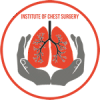Lung cysts, characterized by air-filled sacs within the lung tissue, can be a concerning condition for individuals. While some lung cysts are benign and may not cause any significant issues, others can lead to symptoms like shortness of breath, coughing, and chest discomfort. In addition to medical interventions, certain lifestyle changes can play a crucial role in managing lung cysts effectively. In this blog post, we will explore the lifestyle modifications that can help individuals with lung cysts improve their overall lung health and quality of life.
Understanding Lung Cysts and Their Impact on Lung Health
Lung cysts are small, fluid-filled sacs that can develop within the lung tissue. They may appear as part of an underlying lung condition or as a standalone issue. While most lung cysts are benign, some individuals may experience symptoms and complications that require careful management.
Lung cysts can affect lung function, leading to impaired gas exchange and reduced lung capacity. Additionally, large or multiple cysts may put pressure on nearby structures, causing discomfort and breathing difficulties. Understanding the impact of lung cysts on lung health is crucial to developing effective lifestyle changes to manage the condition.
1. Quit Smoking and Avoid Exposure to Secondhand Smoke
If you are a smoker, quitting smoking is the most important lifestyle change you can make to improve your lung health. Smoking damages the lungs and can exacerbate the impact of lung cysts. In addition to quitting smoking, it’s essential to avoid exposure to secondhand smoke, as it can also harm the lungs and worsen respiratory symptoms.
2. Maintain a Healthy Diet
A well-balanced and nutritious diet can support lung health and overall well-being. Incorporate foods rich in antioxidants, such as fruits and vegetables, which can help reduce inflammation in the lungs. Foods high in omega-3 fatty acids, like fatty fish and flaxseeds, can also be beneficial for lung health. Additionally, stay hydrated by drinking an adequate amount of water daily.
3. Stay Active with Regular Exercise
Engaging in regular physical activity is crucial for maintaining lung health and enhancing cardiovascular fitness. Moderate aerobic exercises, such as brisk walking, swimming, or cycling, can help strengthen respiratory muscles and improve lung function. However, consult with your healthcare provider before starting any exercise program, especially if you experience significant respiratory symptoms.
4. Avoid Exposure to Environmental Hazards
Environmental pollutants, such as dust, chemicals, and airborne irritants, can aggravate lung conditions and worsen symptoms in individuals with lung cysts. Minimize exposure to such hazards by wearing a mask when cleaning or working with potentially harmful substances and ensuring proper ventilation in your living and workspaces.
5. Practice Breathing Exercises
Breathing exercises, like deep breathing and pursed-lip breathing, can help improve lung capacity and efficiency. These exercises can assist in maintaining proper oxygen and carbon dioxide levels, reducing shortness of breath, and promoting relaxation.
6. Manage Stress
Chronic stress can negatively impact lung health and exacerbate respiratory symptoms. Practice stress-reduction techniques, such as mindfulness meditation, yoga, or engaging in hobbies, to alleviate stress and improve your overall well-being.
7. Maintain a Healthy Weight
Being overweight or obese can put additional stress on the lungs and respiratory system. If you are overweight, work with your healthcare provider to develop a healthy weight loss plan that includes a balanced diet and regular physical activity.
8. Follow Your Healthcare Provider’s Recommendations
Compliance with your healthcare provider’s recommendations is essential for effectively managing lung cysts. Attend regular follow-up appointments, take prescribed medications as directed, and communicate any changes in your symptoms promptly.
9. Consider Pulmonary Rehabilitation
Pulmonary rehabilitation programs are designed to improve lung function, enhance exercise tolerance, and provide education on managing lung conditions. Participating in pulmonary rehabilitation can be beneficial for individuals with lung cysts, especially if they experience respiratory symptoms that affect daily activities.
Conclusion
Managing lung cysts effectively involves a multifaceted approach that includes medical intervention and lifestyle changes. Adopting a healthy lifestyle, which includes quitting smoking, maintaining a nutritious diet, staying physically active, and managing stress, can significantly improve lung health and overall well-being.
Additionally, avoiding exposure to environmental hazards, practicing breathing exercises, and following your healthcare provider’s recommendations are essential steps in managing lung cysts and preventing complications. By taking proactive steps and making positive lifestyle changes, individuals with lung cysts can enhance their lung function, reduce symptoms, and improve their quality of life.






